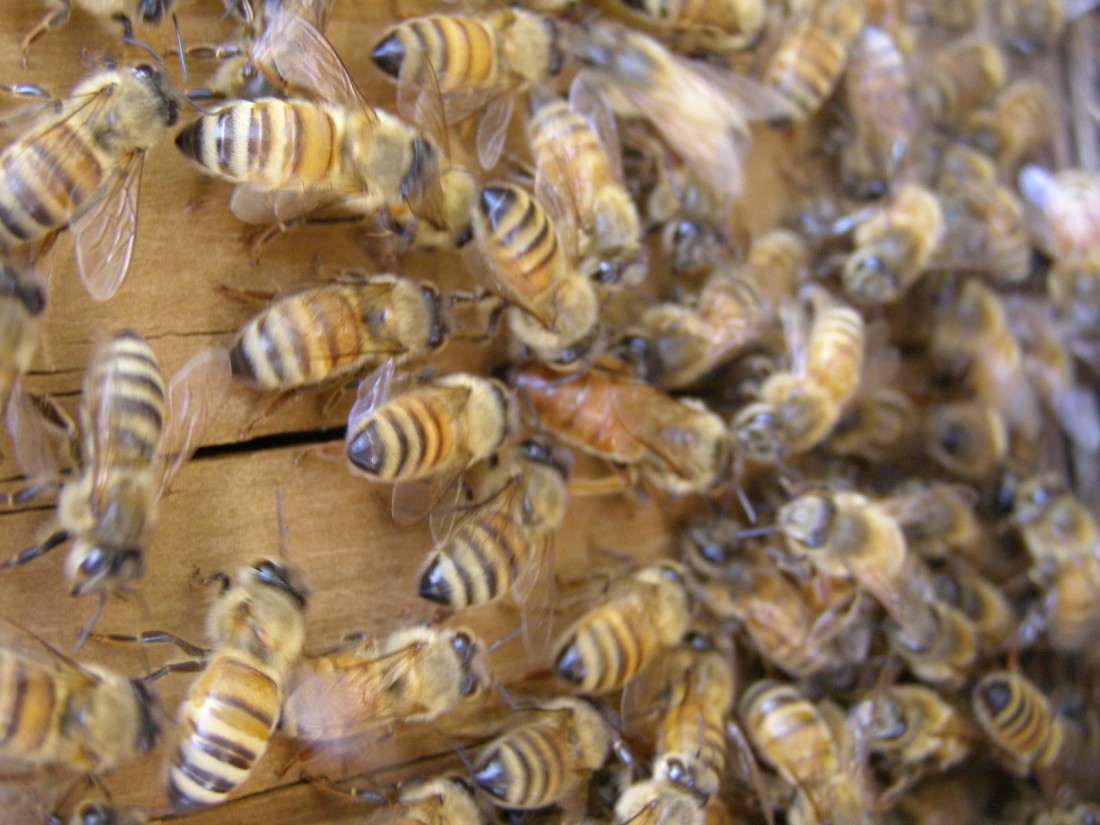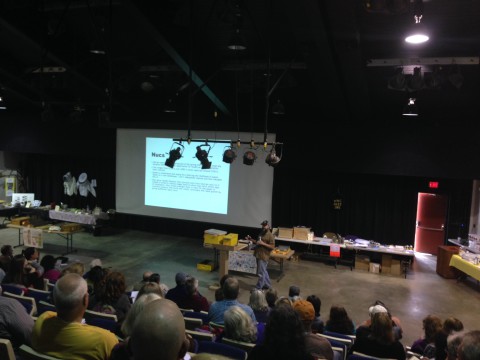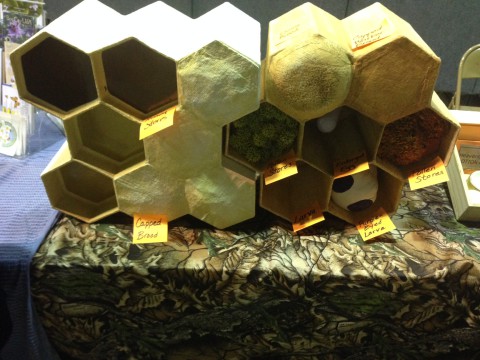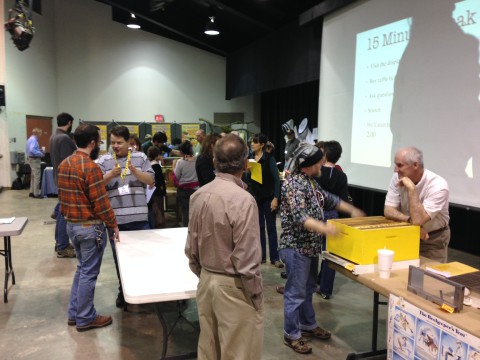Over the weekend, a dedicated crowd of aspiring beekeepers (or “beeks” as they are affectionately called) gathered at the Folk Art Center for the 2015 Basic Beekeepers School, or “bee school.”
The school, which was presented by the Center for Honey Bee Research, offered an opportunity for those interested in starting their own backyard beehives a chance to understand the challenges and rewards associated with beekeeping. The event featured a full day of classes on Saturday and a half-day on Sunday, immersing participants in beekeeping through presentations from a variety of hobbyist and local experts.
Bee school covered both the fundamentals of beekeeping and a range of topics from selecting a site for an apiary to more advanced topics such as treatment for varoa mites. The information provided attendees with a broad perspective on approaches to beekeeping and philosophical stances on how to live among bees. As John Miko, the emcee for the weekend pointed out, “If you ask a beekeeper about bees, the response will most likely be a fact; however, if you ask a beekeeper about beekeeping, the response will most always be an opinion.”
One of the themes that emerged from the weekend was the idea that honeybees need our help in order to provide the pollination services on which we depend. Jon Christie, purveyor of Wild Mountain Bees in Woodfin, discussed the ways humans have inhibited the survival of honeybees while advocating for proper management of bee hives as a way to remove human-induced barriers to survival.
Miko added that, “Bees are not a domesticated animal; beekeeping falls somewhere between animal husbandry and wildlife management.”
The difficulty and uncertainty often faced by beginning beekeepers was tackled by instructors who helped attendees navigate decisions such as hive types, feeding schedules and where to get bees. At the end of class on Sunday, it was clear that there were many more questions still to be answered, but the attendees were now armed with the tools to continue their studies.
During the question and answer period that concluded the school, Janet Peterson of the Buncombe County Bee Club’s education committee cautioned participants against rushing out to start their first hive and instead encouraged the aspiring beekeepers to continue their studies before taking the plunge.
The Basic Beekeepers School is an annual event that helps provide the knowledge necessary for beekeepers to start on their journey to earn master beekeeper certifications under the North Carolina Master Beekeeper Program.







Before you comment
The comments section is here to provide a platform for civil dialogue on the issues we face together as a local community. Xpress is committed to offering this platform for all voices, but when the tone of the discussion gets nasty or strays off topic, we believe many people choose not to participate. Xpress editors are determined to moderate comments to ensure a constructive interchange is maintained. All comments judged not to be in keeping with the spirit of civil discourse will be removed and repeat violators will be banned. See here for our terms of service. Thank you for being part of this effort to promote respectful discussion.